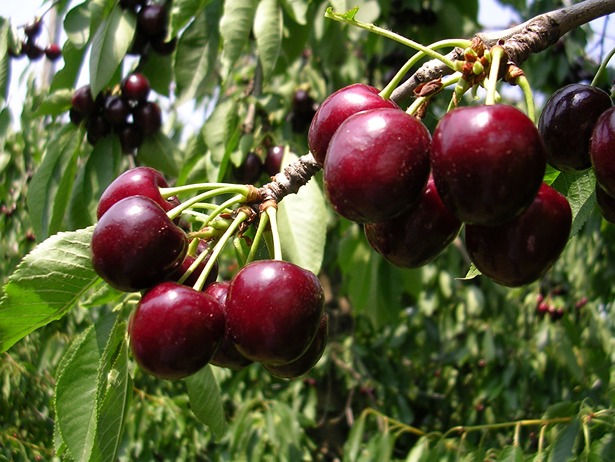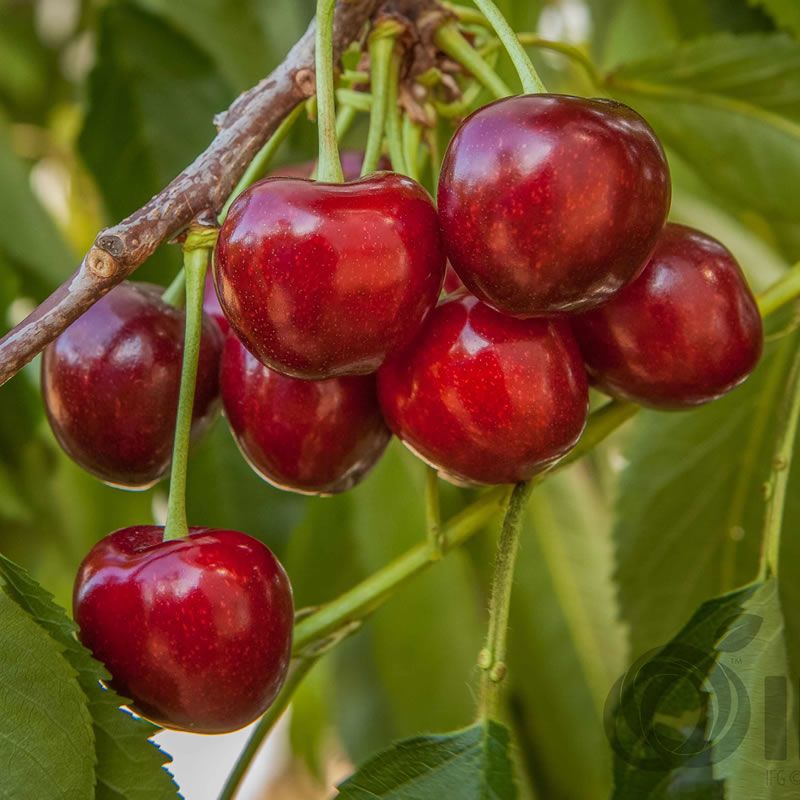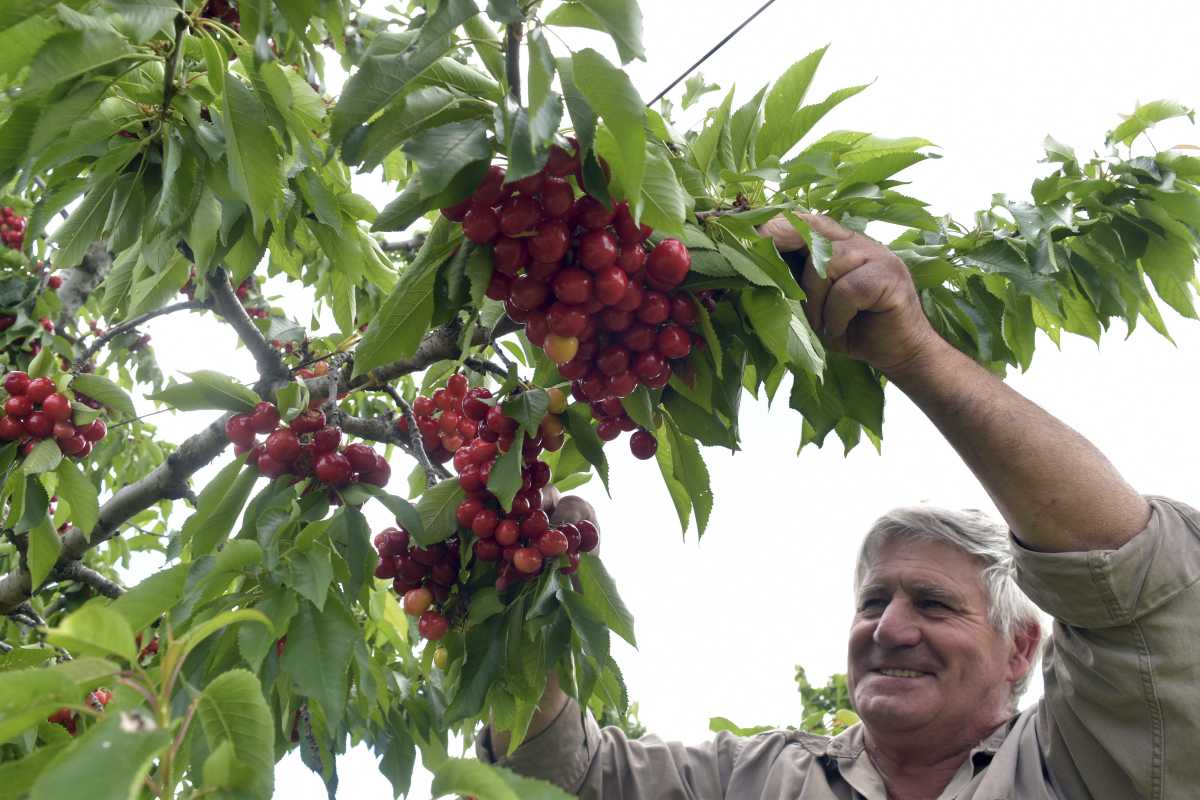The cherry harvest has already started in Argentina, which is facing several challenges such as the climate and pests (fruit fly). According to the director of the Argentine Chamber of Integrated Cherry Producers (CAPSI), Aníbal Caminiti: “The climate has been challenging this season, especially due to the large number of frosts, but despite this, a good production is expected, which would allow us to have enough fruit to export around 8,000 tons. For now, these are just projections.
According to Bichos de Campo, the first cherries will be harvested in Mendoza around October 20. Then, by the last week of the same month, the early varieties should be ripe in the province of Río Negro.
In Neuquén, Chubut, and Santa Cruz, we will have to wait a little longer: “But the machinery of the companies dedicated to this cherry is already ready, prepared. Mendoza is the traditional cherry-growing province, but when it comes to exports, the strongest activity is in Patagonia. 90% of Argentine fresh cherry exports come from Patagonia,” Caminiti said in an interview with the Colonia Agropecuaria program.
The Production
In a good year, they produce around 14,000 tons and export about half. “Last year, we exported 7,200 tons. The truth is that this is a typical regional economy. There are many places that are small irrigated valleys: Chubut, Río Negro, Neuquén, the valleys of Mendoza.
All these locations make this an economy that mobilizes a lot, not only in terms of labor but also in terms of services and the supply of an extremely dynamic industry. Because unlike other fruits, in this case, these are highly perishable fruits. The harvest cannot wait. Unlike apples, pears, which can be stored for months, citrus fruits, kiwis, and other fruits,” he explained.
According to Caminiti, “you can’t make mistakes, there’s no time... If we miss a plane because there were problems at the airport, or something else, that fruit can no longer be shipped, it is left for the domestic market, which is quite complicated. The truth is that it’s quite delicate, because a cold chain must be maintained, and the shelf life and quality of the cherry depend on this chain.
Argentina is, among a group of producing countries far behind Chile, the second-largest exporter of cherries in the northern hemisphere. But the trans-Andean sector is enormous, impossible to compete with them: this year, Chile plans to export more than 500,000 tons of cherries, most of which go to China.
I am convinced that in this 2024 season, Argentina will be able to sell around 8,000 tons abroad. It is worth noting that the quality of Argentine cherries is recognized in important markets such as the United States, China, the Middle East, and Europe.”

Fruit Fly Control
The director of Capci explained that in the case of cherries, the requirement for fruit to come from an area free of fruit flies is demanded by China and the United States, which accounted for 68% of exports last year.
Sterile flies are the way to control the spread of the pest. These are flies sterilized to block the natural reproductive cycle of the pest. This is a method of biological control to also avoid the use of agrochemical products. Historically, they have been produced in Argentina by a state agency in Mendoza, ISCAMEN, which exports them not only to Patagonia but also to other countries.
In addition, Patagonia has a phytosanitary barrier, land-based or aerial, that controls the entry into the protected area of certain products that host the fly, particularly citrus and other species from the northern region of the country. The program stipulates that citrus fruits entering Patagonia must be fumigated at the source and must enter Patagonia with the relevant documentation.
Regarding the release date of sterile flies, the executive explained: “The program starts now, on October 17. After several negotiations, in which the government of Río Negro is the main stakeholder, a fund of 210 million pesos was obtained, allowing us to purchase a first batch of flies.”
The PROCEM program in Patagonia is unique in the world. The program started three decades ago, 100% funded by the private sector. Only about six years ago did the provinces begin to contribute in proportion to the volume of fruit handled.
The executive explained that “the government's contribution was only for the purchase of flies and the distribution costs. Telling us over the past few months that they were withdrawing and would not contribute to the purchase of the flies caused a disengagement that initially impacted almost 40% of the budget planned for this year.”
"It is not easy to find hundreds of millions of pesos to finance all of this. Especially when 59% of this program is funded by the private sector, meaning 400 million pesos are needed to get to December, which the provinces are considering contributing to ensure work from here until the end of the year."
Meanwhile, we have to see how to proceed next year. The sterile fly distribution season runs until May of next year. And I want to emphasize that this program is unique in the world, where the private sector has financed it from day one. All fly control programs worldwide are 100% funded by the public sector."
Regarding the fact that Mendoza also has pest-free areas, “The province of Mendoza, through ISCAMEN, funds 100%. And plans to free the entire province from flies by 2027. The program in Patagonia, on the other hand, is often taken as an example of this public-private financing model during international meetings,” he concluded.
Source: Mundoagro
Image: SL Fruit Service
Cherry Times - All Rights Reserved











